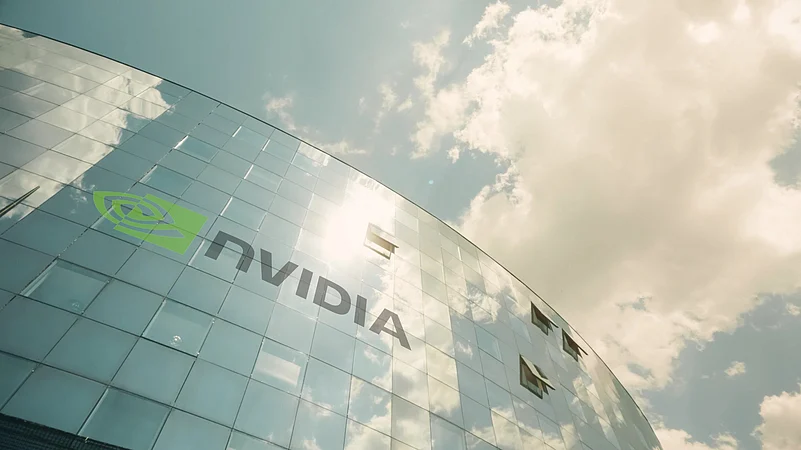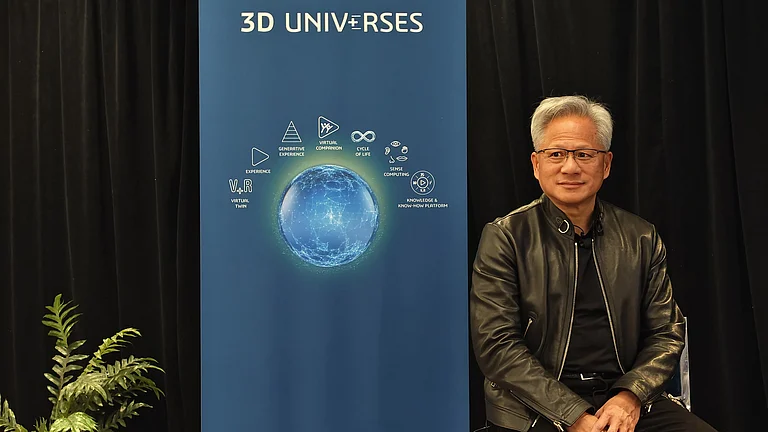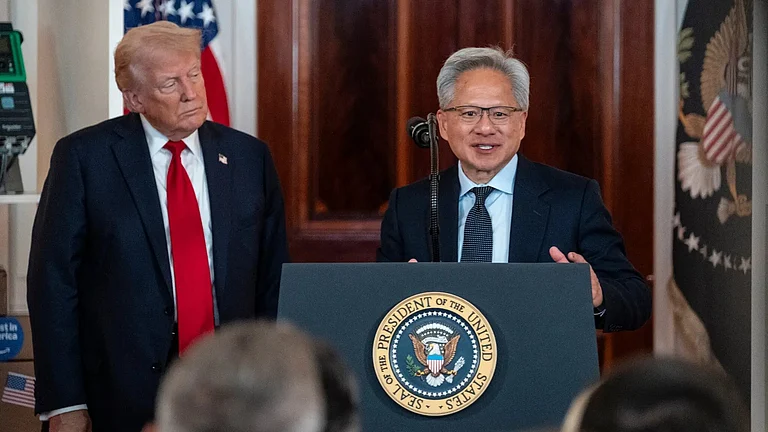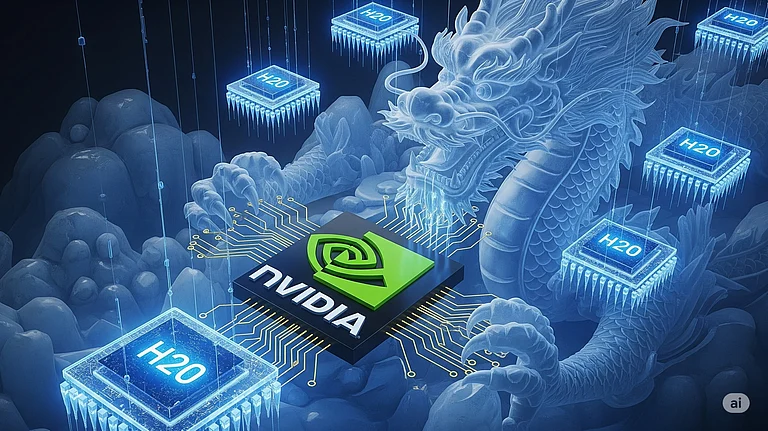US chipmaker Nvidia, which is famous for its renowned artificial intelligence (AI) chips, is now facing investigation from China. The investigation relates to an alleged violation of the antimonopoly laws of the country.
This move by the Chinese government relates to a violation of commitment with regard to the acquisition of Israel's computer networking equipment company, Mellanox Technologies.
Post this incident, Nvidia reportedly said in a statement, “We work hard to provide the best products we can in every region and honor our commitments everywhere we do business.”
While the acquisition was cleared by China, it came with rules such as ensuring steady supply to China and preventing anti-competitive practices.
At the time of the acquisition of the company, Jensen Huang, founder and CEO of Nvidia, said in a statement that the combined expertise of the two companies will help meet the “challenge of surging global demand for consumer internet services and the application of AI and accelerated data science from cloud to edge to robotics.”
When the deal was being signed in 2020, it did face opposition from many. Some highlighted that with this agreement, the Israel-based company might end up making new technology that works only with Nvidia chips. Following this, Nvidia promised that they would ensure that their technology via the components of Mellanox would work effectively with the products of other companies as well.
As per Bloomberg, speaking about the deal in 2020, Huang highlighted that China was convinced to go ahead with the deal in return for openness.
Now, coming to the current situation, it comes at a time when the Chinese government recently imposed sanctions on 13 defense firms of the USA. As per the New York Times, the sanctions were imposed by the country after the USA recently approved a $387 million defense package to Taiwan. Since China views Taiwan as a part of the territory, it considers this deal by the USA as a threat to its sovereignty.
The move by China was in retaliation to the USA after the Biden administration recently imposed restrictions on the export of semiconductor chips and chip equipment to China. Export restrictions were imposed on 24 chipmakers by the US Commerce Department’s Bureau of Industry and Security.
Nvidia Caught in USA-China Tension
One thing that is clear is that Nvidia is caught up in the USA and China tension. For example, in 2022, the USA government put a ban on Nvidia selling its most advanced AI processors to Chinese customers. Following this, the company said in an exchange filing that the sanctions were imposed by the government due to concerns that these products could be used for military purposes in China or Russia.
Meanwhile, China is also trying to promote homemade chips in the country. A Bloomberg report published in September 2024 highlighted that Beijing is trying to push its homegrown chip companies to stay away from the USA-based chipmaker.
However, the move is not confined to only Chinese regulators but also others. In an exchange filing, Nvidia highlighted last month that several regulators, including those from the US, France, the UK, the European Union, South Korea, and China, contacted the chipmaker.
Just to give a few examples, in July Reuters indicated that the chipmaker would face antitrust charges in France. The company was reportedly accused of anti-competitive practices. In a report published by the French authorities, it was highlighted that a huge reliance on the CUDA software of Nvidia might lead to the company having too much power. Just to give some context, Nvidia's CUDA software enables software to utilize GPUs and is fully compatible with all Nvidia GPUs.
Similarly, in the USA, the chipmaker is facing an antitrust probe with regard to allegations of market dominance. The investigation was reportedly started by the USA Department of Justice. The investigation was also looking into the fact if the chipmaker was charging more from customers to discourage them from buying chips from its rivals.
Meanwhile, the EU antitrust regulators have also started their probe on the company. The probe relates to finding if the chipmaker has been bundling its products. This in turn could give the USA-based company an unfair advantage in the market.
Speaking about the same, Abhivardhan, Chairperson and Managing Trustee, Indian Society of Artificial Intelligence and Law, said that the regulatory focus on Nvidia misses the larger point about AI democratization and sovereignty.
“Instead of traditional antitrust frameworks, we need to examine how AI chip dominance affects national technological capabilities, especially for developing economies. The real concern isn't market dominance but the control over fundamental AI infrastructure that affects national strategic interests and research capabilities,” added Abhivardhan.
Now, with AI and chip technology becoming an integral part for most countries, experts indicate that we might expect more such regulatory scrutiny in the future. So, how should Nvidia react?
“Nvidia might respond by adjusting its pricing strategies, enhancing transparency in supply chain management, and possibly divesting or restructuring certain business units to comply with regulatory demands and mitigate antitrust concerns,” added Abhivardhan.
Now, another area that the company has been struggling with is copyright issues. To give some context, in March, the AI chipmaker was sued by authors with regards to using copyright works. As per Reuters, authors Brian Keene, Abdi Nazemian, and Stewart O'Nan indicated that their work was used by Nvidia to train their language model called NeMo. This was later taken down due to copyright issues.
With regards to the legal implications of it, Abhivardhan said, “On legal implications, it must be understood that while data scraping techniques have a correlative & interplayed effect, the fair use justifications raised by these companies can only work if their AI labeling practices do not disenfranchise and demonetize creators and end-users on various intermediaries & platforms, like those of social media.” Nvidia no doubt has a dominant position worldwide with around 80 percent market share. Further, on a year-to-date basis, the shares of the GPU maker have surged by nearly 190 percent on NASDAQ. With the dominance of AI increasing in every field, so will the scrutiny. It will be interesting to note how the company navigates through the ongoing challenges.
































